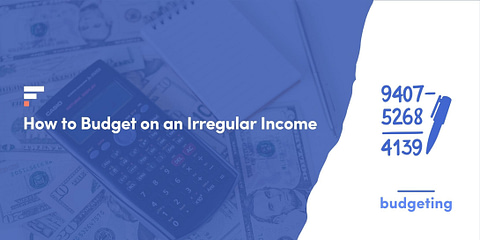Families in different countries face many different situations, but they share a common need to balance their incomes with their need to spend, save, and invest. We’re looking at families in different countries and the methods they use to manage their finances. Today we’ll discuss budgeting and personal finance with a family of three from Munich, Germany.
Germany has one of the world’s most developed economies, and Munich is a vibrant city with world-class infrastructure and a diversified industrial, technological, and service economy. Services are excellent, and wages are well above European averages, but living costs are also relatively high. Munich scores 82.01 on the Numbeo.com cost of living index[1], placing it among the more expensive European cities, higher than Berlin and only slightly below London.
🌎 This article is part of our Budgeting Around the World series, a comparative look at how people around the world manage their money.
👼 Click here to learn how you too can contribute to this series and help us support a great charity in the process.
Did You Know
- The average take-home salary in Munich is 3,549€ or US$4,161[2].
- Germany has a progressive income tax with rates ranging from 0% to 45%. The highest rate applies to taxpayers earning over 270,500€ (US$317,166). Pension, health insurance, and unemployment insurance total around 40% of a worker’s wage, split evenly between the employer and the employee[3].
- Germany has universal health coverage. The statutory health insurance package covers most medical situations. Additional charges may be imposed for some services but are usually capped at 10€/day for services and 2% of annual income for medications.[4]
- Munich’s unemployment rate is 3.3%, the lowest in Germany.[5]
What Does it Cost in Munich?
- 3-course meal for 2, mid-range restaurant: 60€ (US$70.12)
- Beef round, 1 kg: 14.73€ (US$17.27)
- Domestic beer, .5 liter: 4€ (US$4.69)
- Broadband Internet: 35.78€ (US$41.95)
- Cinema, 1 seat: 12€ (US$14.07)
- Monthly public transport pass: 56€ (US$65.66)
- 3 bedroom apartment, city center: 2,291.28€/month (US$2,686.57)
On the “Big Mac Index” Germany, along with the rest of the Eurozone, ranks 7th out of 56 countries surveyed, with the iconic burger costing the equivalent of US$5.16.
📘 If you’re interested in budgeting but not sure where to start we’ve got you covered. Read our guides on how to start budgeting and choosing the right budgeting method.
Getting to Know the Household
We started our interview with some basic questions about the household, their lifestyle, and their approach to managing their finances.
Introduce yourself – Tell us a couple of things about yourself so we get to know you better.
Mid 30s male.
Location – Where do you live (city, country)? What kind of place is it? How do you like living there?
Munich, Germany. It’s a nice place to live.
Household structure – How many adults, kids, what ages?
2 adults (mid 30s), 1 child < 1
Occupation – What do you and other adults in the household do for a living?
Software developer
Architect
Net household income – What is the take-home pay of your household (income after taxes and other deductions)?
6,500€ (US$7,621)
Sources of additional income (monthly and annual) – List any sources of income other than your salary.
Stocks
How would you describe your standard of living? – Based on the place you live in, your income, compared to other people around you…
Middle class
What is your approach to managing your finances? – What is your general approach or personal philosophy on managing your finances? Do you use a budget and if you do do you generally stick to it? How do you make financial decisions in your household?
I do not use a budget, but pay the bills and put aside a fixed sum every month.
Let’s Break Down the Expenses
Now we’ll break down our respondent’s monthly household expenses into different budget categories.
📧 Get notified when we publish the next post in this series by subscribing to our newsletter!
🏠 Housing
2,500€
(US$2,931)
(38.5%)
Mortgage
🔌 Utilities
600€
(US$704)
(9.2%)
All utilities combined and maintenance fees
🍕 Food
600€
(US$704)
(9.2%)
Groceries 400€
Others 200€
🚗 Transportation
150€
(US$176)
(2.3%)
👶 Kids
150€
(US$176)
(2.3%)
Diapers
Baby food/ Formula
👗 Clothing and personal care
200€
(US$234)
(3.07%)
Maybe less during lockdown…
🧹 Household supplies
250€
(US$293)
(3.85%)
Furniture costs over ~6 years period
🛡 Insurance
80€
(US$94)
(1.23%)
🎮 Entertainment
0€
No activities in the last year due to the pandemic.
💻 Subscriptions
40€
(US$47)
(0.61%)
⛪ Charity/Donations
15€
(US$18)
(2.5%)
On average over the course of a year.
.
🏦 Savings
1,200€
(US$1,407)
(18.46%)
Stocks
Index funds
Emergency account
* All figures are as reported by respondents. Totals may not add up to 100%.
📘 We only included the categories in which this particular household has any monthly expenses. View the full list of budget categories we used for this survey, along with what’s included in each of those categories: 110 Budget Categories.



























